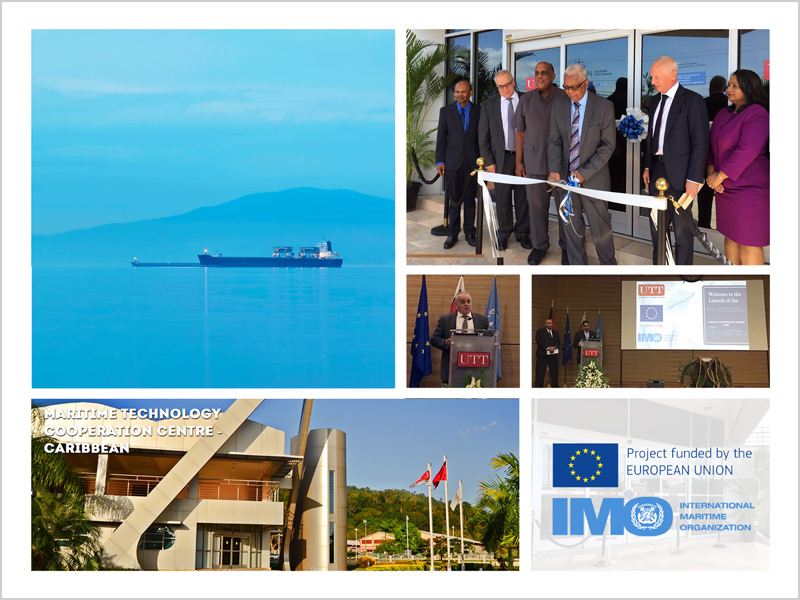A new centre tasked with promoting technologies and operations to help navigate shipping into a low-carbon future has been launched at the University of Trinidad and Tobago (8 March). The centre will cater to the needs of the Caribbean region under the Global Maritime Technology Cooperation Centre Network (GMN) – a project funded by the European Union (EU) and run by IMO. The GMN initiative unites carefully selected technology centres into a global network focused on supporting developing countries in activities including development of national energy-efficiency policies for their maritime sectors.
Estimates say ships’ energy consumption and CO2 emissions could be reduced by up to 75% by applying operational measures and implementing existing technologies. By collaborating with the 16 countries in the region and various forward-thinking institutions, companies and international bodies – the Caribbean centre aims to make its contribution to energy-efficient shipping.
The centre was unveiled (photos) by the Honourable Anthony Garcia, Minister of Education of Trinidad and Tobago, and, speaking at the launch event, the country’s Minister of Works and Transport, the Honourable Rohan Sinanan, endorsed the new initiative. IMO was represented at the event by Stefan Micallef, Director of the Marine Environment Division, and GMN Project Manager – Tamar Barabadze. H.E. Mr. Arend Biesebroek, Ambassador of the European Union to Trinidad and Tobago represented the EU.
Find out more about the European Union’s capacity building work here.
The University of Trinidad and Tobago is a multi-campus facility that hosts specialized programmes dedicated to developmental disciplines including maritime capacity building, energy efficiency, environmental studies and marine research. MTCC-Caribbean will be situated within the Chaguaramas Campus which is in the North-Western Peninsula of Trinidad and Tobago.
